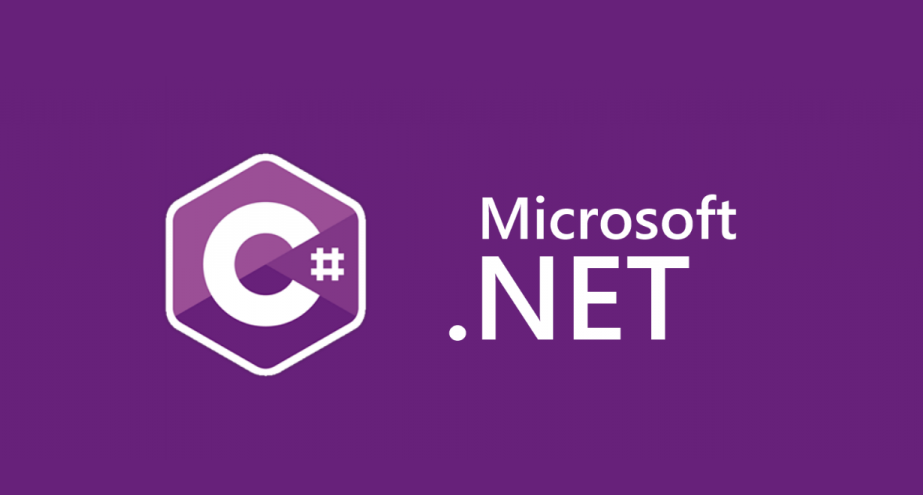Why .NET Developers Are in High Demand for Enterprise Projects

The demand for skilled .NET developers has skyrocketed in recent years, particularly in the realm of enterprise projects. This surge stems from a variety of factors, ranging from the robustness of the .NET framework to its ability to cater to diverse business requirements. Organizations worldwide are leveraging .NET Development Services to ensure scalability, security, and efficiency in their enterprise applications. This article delves into the reasons why .NET developers are indispensable for enterprise projects and how their expertise can transform businesses.
1. A Versatile Framework for Diverse Applications
The .NET framework, developed by Microsoft, is celebrated for its versatility. It supports a wide array of application types, including web, mobile, desktop, cloud-based, and IoT applications. This adaptability makes it an ideal choice for enterprises looking to develop a unified ecosystem of applications that can seamlessly integrate with one another.
With frameworks like ASP.NET for web applications, Xamarin for mobile development, and Blazor for interactive web UIs, .NET developers have the tools to create feature-rich, cross-platform solutions. This versatility not only saves time and cost but also ensures a consistent user experience across platforms.
2. High Performance and Scalability
Enterprise projects often require applications to handle massive volumes of data and concurrent users without compromising performance. The .NET framework is optimized for high performance, leveraging features like Just-In-Time (JIT) compilation and caching to deliver fast and efficient applications.
Moreover, .NET’s scalability ensures that applications can grow alongside the business. Whether an organization is scaling vertically by adding resources to a single server or horizontally by adding more servers to a network, .NET developers can architect solutions that accommodate this growth seamlessly.
3. Robust Security Features
Security is a top priority for enterprise projects, and .NET does not disappoint in this regard. The framework includes built-in security features such as:
- Code Access Security (CAS): Helps restrict the operations that code can perform based on permissions.
- Authentication and Authorization: Supports modern security protocols like OAuth and OpenID Connect.
- Encryption: Provides robust libraries for data encryption, ensuring secure communication and data storage.
.NET developers are well-versed in implementing these features to safeguard sensitive business data and maintain compliance with industry regulations.
4. Rich Ecosystem of Tools and Libraries
.NET boasts an extensive ecosystem of tools, libraries, and APIs that streamline development processes. Developers can leverage pre-built components to reduce development time and focus on customizing applications to meet specific business needs.
From NuGet, a package manager offering thousands of reusable packages, to Visual Studio, an integrated development environment (IDE) with powerful debugging and deployment features, the ecosystem equips .NET developers with everything needed to build, test, and deploy enterprise-grade applications efficiently.
5. Cross-Platform Development with .NET Core
With the advent of .NET Core, now succeeded by .NET 5 and later versions, Microsoft has enabled true cross-platform development. Enterprises can deploy applications on Windows, macOS, and Linux, ensuring broader reach and flexibility. This capability is particularly valuable for businesses with diverse IT infrastructures.
The cross-platform nature of .NET Core also reduces costs associated with maintaining separate codebases for different platforms. Developers can write code once and deploy it across multiple environments, accelerating time-to-market.
6. Integration Capabilities for Legacy Systems
Enterprises often rely on legacy systems that are critical to their operations but require modernization to keep up with technological advancements. .NET’s interoperability allows developers to integrate new applications with existing systems seamlessly, ensuring continuity and minimizing disruption.
Additionally, .NET supports integration with other popular technologies and platforms, such as:
- Microsoft Azure: For cloud-based solutions.
- SQL Server: For database management.
- Third-Party APIs: For enhanced functionality.
This integration capability makes .NET developers valuable assets for enterprises undergoing digital transformation.
7. Strong Community Support and Continuous Updates
The .NET developer community is one of the largest and most active in the tech industry. This robust community support ensures that developers have access to extensive resources, including tutorials, forums, and open-source projects, to solve complex problems efficiently.
Moreover, Microsoft’s commitment to continuously updating and enhancing the .NET framework ensures that it remains relevant in an ever-evolving technological landscape. Regular updates bring new features, performance improvements, and security enhancements, enabling developers to stay ahead of the curve.
8. Cost-Effectiveness of .NET Development Services
For enterprises, cost is a critical factor in software development. .NET Development Services offer a cost-effective solution by:
- Reducing development time with reusable components and libraries.
- Supporting cross-platform deployment to eliminate the need for multiple codebases.
- Offering free and open-source tools, such as .NET Core, to minimize licensing costs.
By leveraging these benefits, enterprises can achieve significant cost savings without compromising on quality or functionality.
9. Cloud-Native Development with .NET
As more enterprises move to the cloud, .NET developers are playing a pivotal role in creating cloud-native applications. The framework’s compatibility with Microsoft Azure and other cloud platforms enables businesses to build scalable, resilient, and high-performing cloud solutions.
Features like containerization support through Docker, microservices architecture, and serverless computing further enhance .NET’s suitability for modern cloud applications. These capabilities empower developers to deliver solutions that align with the strategic goals of enterprises.
10. Focus on AI and Machine Learning
Artificial Intelligence (AI) and Machine Learning (ML) are transforming the way enterprises operate, and .NET is well-equipped to support this trend. With libraries like ML.NET, .NET developers can integrate intelligent features, such as predictive analytics, natural language processing, and image recognition, into enterprise applications.
This capability not only enhances operational efficiency but also drives innovation, enabling businesses to gain a competitive edge.
11. Demand for Digital Transformation
The global push for digital transformation has significantly contributed to the demand for .NET developers. Enterprises are increasingly seeking to modernize their operations, improve customer experiences, and unlock new revenue streams through digital technologies.
.NET’s comprehensive feature set, combined with the expertise of skilled developers, makes it the go-to choice for achieving these objectives. From automating workflows to creating data-driven decision-making tools, .NET developers are at the forefront of driving digital transformation initiatives.
12. Future-Ready Solutions with .NET 6 and Beyond
The release of .NET 6 has further solidified the framework’s position as a leading choice for enterprise projects. With features like improved performance, better support for ARM64 devices, and enhanced development experiences, .NET 6 enables developers to create future-ready solutions.
As Microsoft continues to invest in the framework, enterprises can rest assured that .NET-based applications will remain relevant and adaptable to emerging trends and technologies.
Conclusion
The high demand for .NET developers in enterprise projects is a testament to the framework’s capabilities and the value it brings to businesses. From its versatility and performance to its robust security and integration capabilities, .NET empowers developers to deliver solutions that meet the complex needs of modern enterprises.
Organizations looking to stay competitive and drive innovation should consider leveraging .NET Development Services to unlock the full potential of their digital initiatives. By partnering with skilled .NET developers, enterprises can build scalable, secure, and future-ready applications that drive growth and success.
In a world where technology is the backbone of business operations, the role of .NET developers is more crucial than ever. Whether it’s creating cloud-native applications, integrating AI and ML, or modernizing legacy systems, their expertise ensures that enterprises are well-equipped to navigate the challenges and opportunities of the digital age.
Research Snipers is currently covering all technology news including Google, Apple, Android, Xiaomi, Huawei, Samsung News, and More. Research Snipers has decade of experience in breaking technology news, covering latest trends in tech news, and recent developments.











